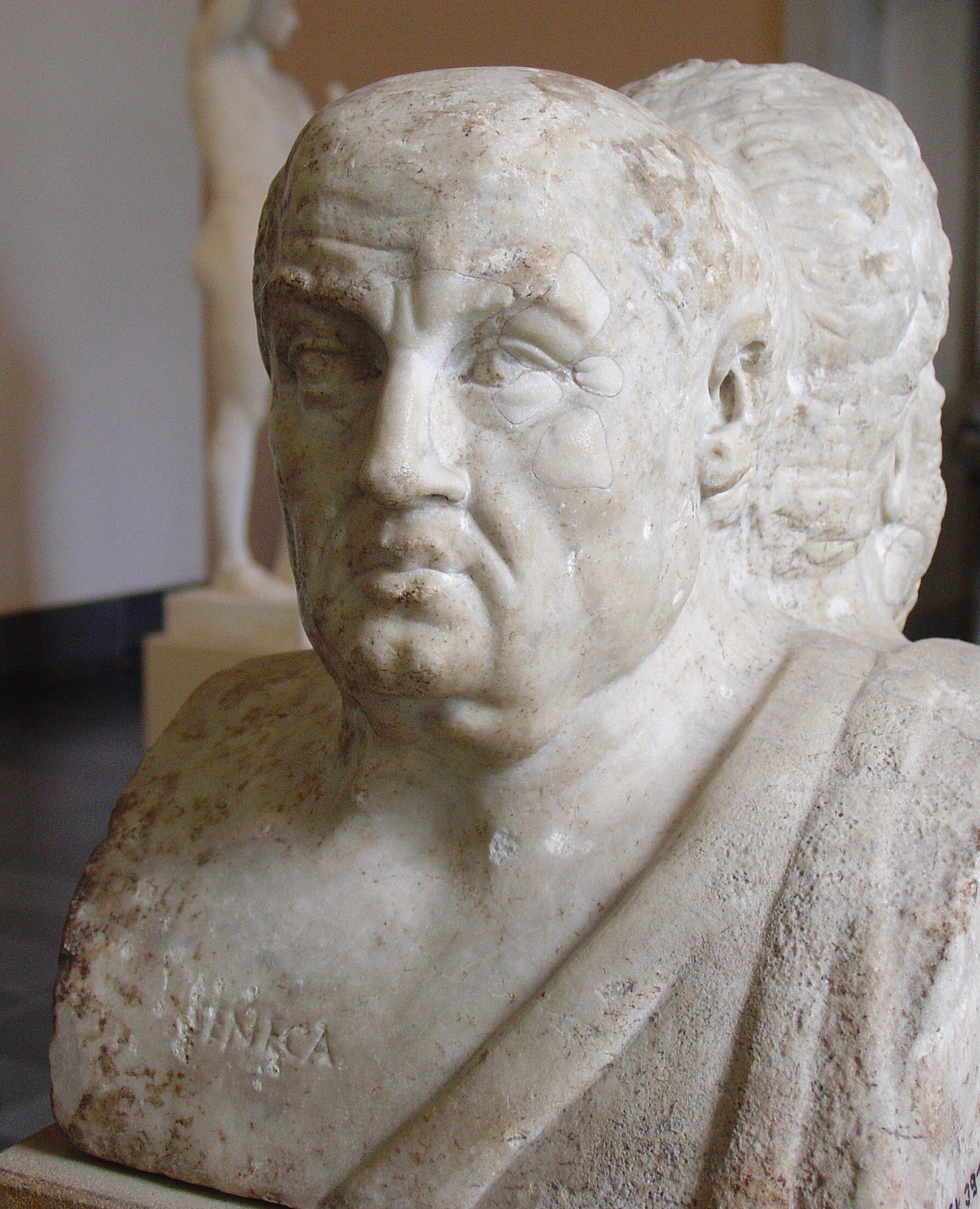Blogging Nietzsche—Nietzsche's Poetry: "Seneca et hoc genus omne"
As a philologist, Friedrich Nietzsche loved playing with ancient languages, both in his philosophical writing and in his short rhymes and poetry. Nietzsche’s short poem “Seneca et hoc genus omne” (Nietzsche, The Gay Science, ‘Joke, Cunning, and Revenge’: Prelude in German Rhymes, No. 34), is a prime example:
34. Seneca et hoc genus omne
They write and write their desiccat-
ing learned la-di-da-di,
as if primum scribere,
deinde philosophari.
For the sake of those who don’t know Latin, here is a rendition of this short poem with the Latin phrases translated into English (translation by Adrián del Caro):
34. Seneca and His Lot
They write and write their desiccat-
ing learned la-di-da-di,
as if “first write,
then philosophize.”
As you can see clearly from the English translation of the title, “Seneca and His Lot,” this short poem aims to criticize the ancient Roman philosopher Seneca the Younger and other stoic philosophers (i.e., “Seneca’s lot”). Stoicism is a multifaceted philosophy of life in which one aims to live in harmony with the natural order of the cosmos and of nature, and in harmony with the natural finitude and decay of everything within it. An essential part of stoicism is the mastery of ones own emotions—fear, zealousness, attachment, etc.—not to eliminate those emotions completely but to control and master them.
(Bust of the ancient Roman stoic philosopher Seneca the Younger)
Nietzsche is as critical of stoicism as he is of other schools of philosophy and religion, from Platonism to Christianity, as Nietzsche holds that these philosophies are life-denying instead of life-affirming. Framed in this way, Nietzsche, in criticizing Seneca and other stoic philosophers, is claiming that mastery of one’s own natural drives is tantamount to a philosophical death-wish in which stoics constantly place themselves in opposition to their own embodied needs, both physical and psychological. In this short poem, Nietzsche calls the writings of the ancient stoics “learned” but “desiccating,” meaning that they dry out and suck the life out of their readers, mummifying themselves and others prematurely, long before their time is up—physically alive, perhaps, but not really living.
In line 2, Nietzsche labels the stoics’ words “la-di-da-di,” which one might interpret either as meaningless baby talk or perhaps as fanciful philosophical daydreaming that flies in the face of our human embodiment, with all the needs, drives, and desires that embodiment entails.
(According to Friedrich Nietzsche, the writings of the ancient stoics, which amount to “write first, then philosophize” or “write first, then live,” are desiccating, sucking the life out of themselves and their readers, mummifying them prematurely.)
In lines 3 and 4 Nietzsche accuses the ancient stoics of holding the view that one should “first write, then philosophize.” It’s important to keep in mind that, for Nietzsche, real philosophy is not merely about thinking abstractly. Real philosophy, for Nietzsche, involves embracing your own physical embodiment and situatedness, crafting your own life artistically through your own perspectives, interpretations, and meaning. Thus by “first write, then philosophize” Nietzsche means something more like “first write, then live,” which he states as a jab against the life-denying philosophy of stoicism.
According to Nietzsche, the ancient stoics are always deferring genuine living for the sake of writing, and they never get around to the true art of philosophy, which is the art of really living and embracing this earthly, embodied, physical life and its adventures, with all their highs and lows that go along with them. Writing and philosophy should be full of life—not dried out, desiccated, and deprived of life!
(Live first, then write!)
When, then, is the alternative? What is the “proper” (in irony quotes) relationship between writing and living, or between writing and philosophizing? If Nietzsche is critical of Seneca and his fellow stoics for writing first before really living, the only other option would be to make sure that you are really living first, and only then stopping to write about the things you’ve seen, felt, experienced, and accomplished. Writing before you have really lived, and especially if you’re consciously trying to squash your own inner drive and vitality, misses the point of writing completely, along with the point of both living and philosophizing.
So with that insight in mind, I’ll end this blog post, lest it turn into meaningless “la-di-da-di” drivel, like stoicism does in Nietzsche’s eyes. I’ll turn off my computer and focus on the art of living for a while, all in the interest of giving myself something genuinely worthwhile about which to write the next time around. If you are a philosopher—a real philosopher and a philosopher of the future, according to Nietzsche—don’t think or write in a vacuum. Train yourself out of philosophizing as mere thinking and writing. Embrace the art of living—real living—as the truest and most authentic form of philosophical expression. First live, then write, not vice versa!
For Further Reading:
The Gay Science by Friedrich Nietzsche
Letters from a Stoic by Seneca











